Getting a pool installed in your backyard can be an exhilarating experience that transforms your backyard into a haven. But with any large investment, there are sneaky pitfalls that can result in unexpected costs and headaches down the road. Whether you’re planning a swimming pool installation for the first time or considering a renovation, it’s important to be aware of the common mistakes and maintenance challenges that can arise throughout the process.
With over 10 years of experience designing and installing custom pools in Georgia, HiPools has encountered hidden challenges many pool owners overlook. In this article, we reveal 7 common pitfalls and professional solutions.
High Upfront and Hidden Costs of Pool Installation
Installing a pool is usually a good investment, but it’s also important to understand that the initial costs can quickly accumulate. On top of the initial price of the pool itself, there are a number of other costs that homeowners are not prepared for. Pool installation costs are more than the pool itself and can include preparatory work to the land, landscaping, pool equipment, and permit fees.
Also, there are unexpected costs that can arise during building, such as plumbing, electrical, or local building codes. Make sure you know precisely what these costs are from the beginning so you won’t be surprised later on. By being prepared and discussing all of the potential costs with your builder, you’ll be able to better manage your backyard pool issues and maintain your investment within your budget.
Maintenance: A Skim Job is Not Enough
Once one has a pool, maintenance is probably the most aggravating on-going challenge that most new pool owners overlook. Even though on initial observation one might believe that a clean pool is all about skimming trash and playing with the water chemistry, there is much more to keeping one’s pool in good health. Water filtration problems, equipment upkeep, and seasonal upkeep can be time-consuming and costly if not performed properly.
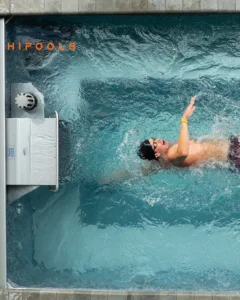
Daily maintenance such as cleaning the pool’s filtration system, checking the pool’s structure for wear and tear, and keeping water chemistry in check are essential to maintaining the pool safe and in working order. Disregarding these pool maintenance problems can lead to larger issues down the road, such as costly pool repairs and a shorter lifespan for the pool. Understanding the whole scope of what it means to maintain your pool will enable you to enjoy it for years without unexpected headaches.
Surprise Construction Issues: Major Pitfalls to Avoid
During the installation of a pool, there are some construction issues that might pop up at any time and slow down the project and cause additional expenses. Some of the issues to note include:
- Unforeseen Soil Conditions: • The quality of soil in your location may have a significant effect on the digging and foundation process, especially when you encounter rocks or loose soil. These situations would require extra work or specialized equipment.
- Poor Drainage: •your land has poor drainage, water might collect around your pool, resulting in flooding or erosion. The problem must be resolved at the time of construction to avoid future loss.
- Underground Utility Lines: • Discovery of underground utility lines during digging might result in delays and necessitate rerouting. Ensure that local utility companies are contacted ahead of time to identify any possible problems.
- Permitting and Legal Delays: • Obtaining the necessary permits to construct a pool will take longer than expected, especially if your area has stringent building codes or zoning regulations. Make sure all the approvals are in place before proceeding.
- Inaccurate Project Estimates: • Contractors can downplay the complexity or expense of the project, leading to unexpected costs or longer-than-expected timeframes. A detailed, clear contract will avoid this risk.
- Weather Conditions:• Inclement weather conditions such as heavy rain or heat will delay the construction timeline, and thus it is wise to prepare for weather disruption.
- Delays from Subcontractors: • Third-party subcontractors for specific services such as electricity or plumbing may in some cases lead to delay if they are unable to arrive as scheduled.
Knowing these potential construction issues enables you to plan in advance and have solutions available in the event that any unexpected issues arise during your pool’s installation.
| Pitfall | Solution |
|---|---|
| Poor Soil Quality | Pre-install soil testing via certified Georgia labs (e.g., Georgia Soil Testing). |
| Hidden Costs | Budget 20% extra for unexpected expenses. |
| Wrong Material Choice | Consult HiPools experts to choose between vinyl, fiberglass, or concrete. |
Safety Risks and Liability Concerns: What You Need to Know
Ensuring your pool is safe and secure is crucial to preventing accidents and avoiding liability concerns. Here are some safety risks and legal considerations to keep in mind when installing a pool:
Pool Fencing and Barriers
- Many states, including Georgia, require pool fencing to prevent children or pets from accessing the pool area. Make sure your pool design includes a secure fence that meets local regulations and ensures safety.
Pool Alarms
- Installing pool alarms that detect movement or changes in water levels can help alert you to any unauthorized access. This added layer of protection is essential, especially in households with young children.
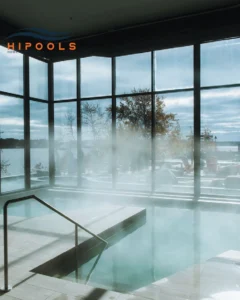
Slip and Fall Hazards
- Ensure that the pool deck and surrounding areas have slip-resistant surfaces to prevent accidents. Wet surfaces around the pool can easily lead to falls, so safety flooring and careful design are crucial.
Electrical Safety
- Pools require electrical systems for pumps, lighting, and heaters. It’s essential to ensure all electrical installations are properly grounded and meet local safety codes to prevent electrical hazards.
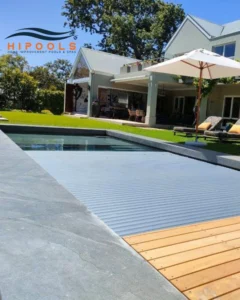
Liability Insurance
- Pool owners should consider adding pool-related coverage to their homeowner’s insurance to protect against any accidents that occur on their property. Insurance can help cover potential legal costs or medical bills.
Emergency Access
- Consider the ease of emergency access around your pool. Keep rescue equipment, such as life rings or a first-aid kit, easily accessible, and ensure that neighbors or guests are aware of safety protocols.
Long-Term Value: Will a Pool Pay Off?
When designing a pool installation, remember the long-term value that it adds to your home and lifestyle. Though pool installation costs are high, the proper maintenance will have your pool add value to your home, providing a space for fun, relaxation, and entertainment. But it’s important to balance the expensive pool errors that can occur from poor maintenance, safety issues, or poor construction.
In certain situations, a pool can enhance the resale value of your home, particularly in warm climates such as Georgia where pools are extremely popular. Conversely, poorly maintained pools or pools with persistent problems can lower your home’s value and result in expensive repairs. Understanding the long-term commitment and cost of having a pool will help you more intelligently determine if it is worth the investment.
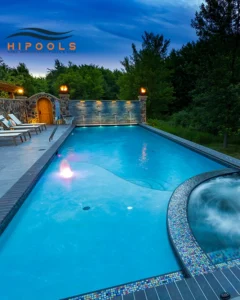
“Fiberglass pools are ideal for humid Georgia regions (like Atlanta) due to crack resistance (Source: EPA Climate Zones).”
Weather and Environmental Considerations
Your regional weather and environmental circumstances can have a huge impact on how long and how much work your pool takes. In such places as Georgia, whose weather sometimes alternates, you may need to plan for the impact of extreme temperatures on your pool equipment and shell.
Extreme weather like heavy rain, storms, or high winds may destroy the pool area and also affect water quality. Environmental factors, such as local vegetation, soil type, and wildlife, may introduce debris or affect pool chemistry. Knowing how weather and environmental conditions in your area affect pool care is important to maintaining your pool in peak condition throughout the year. Spending money on good-quality materials and protective devices, like pool covers and drainage, can prevent these issues and prolong the life of your pool.

Making the Wrong Pool Choice
The wrong type of pool can result in frustration, extra expense, and constant maintenance problems. Regardless of whether you choose concrete, fiberglass, or vinyl, there are a number of considerations to bear in mind, including your budget, space available, and local climate.
Concrete pools are highly customizable but quite more expensive to install and require more regular maintenance. Fiberglass pools are low-maintenance but have less design flexibility. Vinyl pools are cheap but require liner replacement in the long term.
Deciding on the wrong pool material for your needs can cause a poor investment and increased upkeep. For instance, in the case of heavy winters, a vinyl pool would be the wrong choice because the liner would split. Assess your upkeep commitment, budget, and lifestyle to ensure the best type of pool for your situation so that it delivers long-term satisfaction and worth.
| Issue | Risk | Solution |
| High Costs | Budget overruns | Get 3+ quotes, plan for extras |
| Maintenance | Time/money drain | Automate cleaning, learn basics |
| Safety Risks | Drowning, lawsuits | Install fence & alarm, check insurance |
| Poor ROI | Doesn’t boost home value | Research local buyer demand |
| Wrong Pool Type | Doesn’t fit needs | Consult experts before choosing |
Your Questions Before Installing a Pool
- “Do I need a permit for a pool in Georgia?”
Yes. Municipalities like Atlanta or Savannah have specific regulations. View Permit Guide. - “What’s the difference between vinyl and fiberglass pools?”
Fiberglass resists Georgia’s humidity better, but vinyl has lower upfront costs. - “How do I ensure pool safety?”
Install state-compliant fencing and alarm systems. Pool Safety Tips.
Final Thoughts: Ditch Pool Regrets With Intelligent Planning
A pool in the backyard should be a source of happiness—not worry. Although the beauty of clear water is undeniable, surprise costs, maintenance woes, and buyer’s remorse can transform your fantasy into a money pit.
Before digging:
✅ Budget smart: factor in permits, landscaping, and long-term maintenance.
✅ Select the proper material: tough fiberglass, personalized concrete, or affordable vinyl.
✅ Partner with trusted pros: skilled installers prevent leaks, delays, and safety risks.
At HiPoolss, we’ve helped hundreds of Georgia homeowners dodge these pitfalls with stress-free installations and honest advice. Limited summer slots remain!
Call now for your free, no-pressure quote—and make a splash without the splashback!

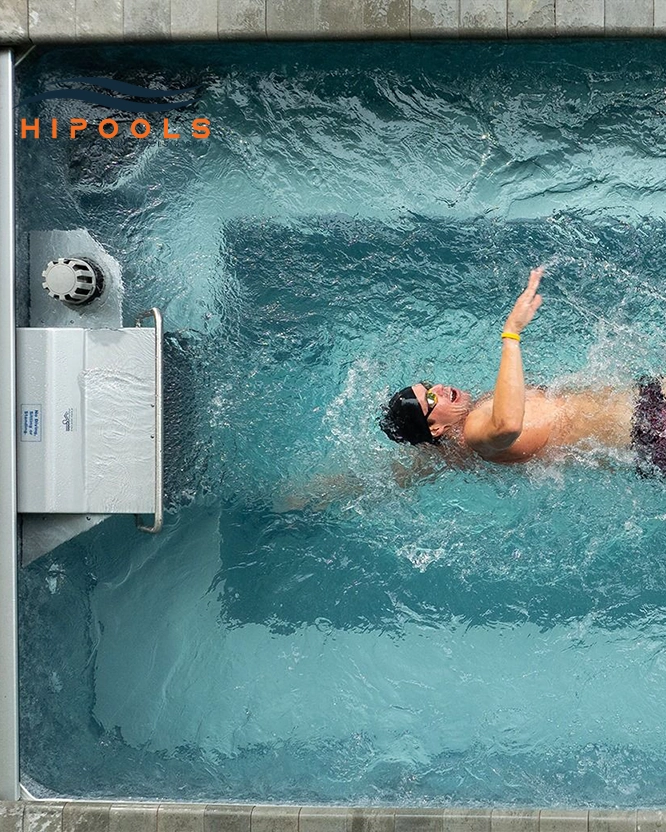
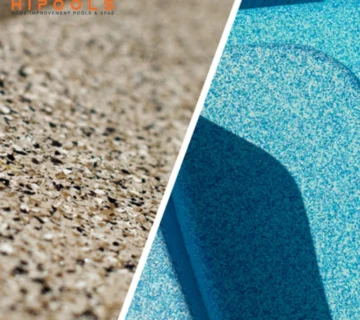
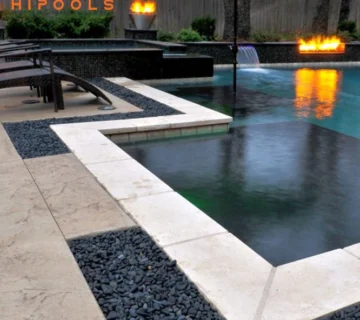
No comment